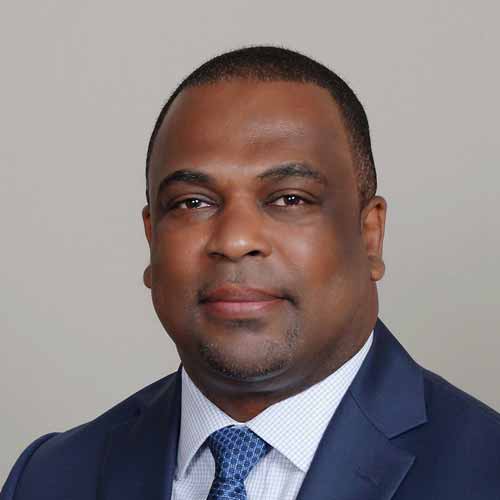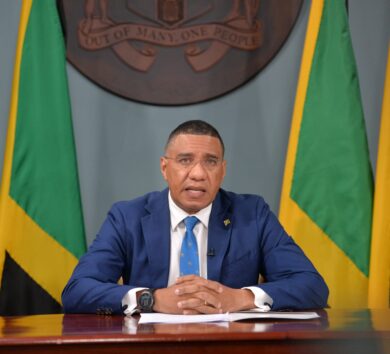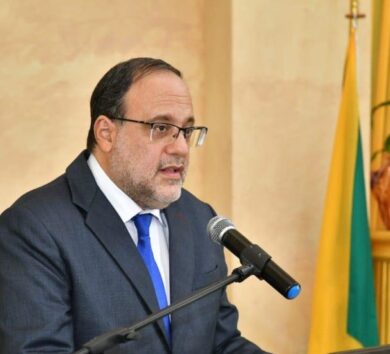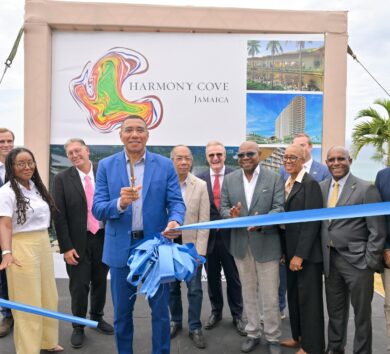

In an increasingly unstable world, energy independence is no longer a lofty ambition—it’s a necessity. As geopolitical conflict disrupts fuel supply chains, those at the end of the chain suffer: Inflation eats away at household budgets, prompting tradeoffs that slow our ambition and prevent us from living the lives we want. As we enter yet another potentially record-breaking hurricane season, Caribbean nations can no longer afford to rely on expensive and imported fossil fuels. It is time for the region to produce its own energy.
Our electricity is painfully expensive, our grids are fragile, and our economies remain vulnerable to the volatility of oil and gas markets. This not only makes long-term financial planning difficult but also threatens our energy security and independence.
Yet our strongest resources remain underutilised: the sun, wind, and geothermal. The same sunshine that has fueled our tourism and agricultural economies can now power the Caribbean’s next economic pillar—renewable energy. It’s time to build a clean energy future that is affordable, secure, and ours.
The Case for Change

Caribbean countries like Jamaica pay some of the highest energy prices in the world, driven by an outdated dependence on imported diesel. As I write this, the average Jamaican household spends $0.36 per kilowatt hour on electricity—significantly higher than the global average. These systems are not only inefficient and polluting, but also stifle economic growth and disadvantage the most vulnerable.
Yet the technology to improve these circumstances already exists. And a transition to solar and other renewable sources is not only possible but cost-effective. Research from RMI, where now I serve as a senior leader, has shown that switching to solar and battery systems can not only reduce electricity costs in the medium term, but also generate savings, resilience, and jobs while doing so.
The region has set ambitious climate targets. Jamaica’s Vision 2030 strategy and the National Energy Policy have laid out the goal of 50% renewables by 2030. Solar farms in Clarendon and Westmoreland, the Wigton Wind Farm and Barbados’ explosion of distributed energy have not only shown that this is possible, but offer lessons learned that serve as a model for the region. But the majority of Caribbean nations are still falling short of what’s needed to meet our climate goals and reduce electricity costs for ordinary citizens.
Progress has been slow, not because of a lack of sunshine, but because of policy delays, outdated regulations, and financing hurdles. High borrowing costs, limited fiscal space, and gaps in skilled labour further constrain the transition. The reality is that most clean energy projects still struggle to get off the ground—but these challenges are solvable with bold political leadership and regional cooperation.
We are halfway through the decisive decade, and the next five years will be critical. The time to act is now.
A Blueprint for Regional Transition

There is a path forward. RMI, which has supported renewable energy initiatives across the Caribbean for over a decade, has just released a new report: “A Caribbean Regional Transition Scenario.” It aims to identify strategies for regional policymakers and energy leaders to accelerate the just and equitable transition to renewable energy in the region.
The findings demonstrate that solar photovoltaic systems, especially when paired with battery storage, can outperform fossil fuel systems in economic performance over a 25-year period in just the next few years. A phased transition—beginning with a 50% renewable share by 2030 and 100% by 2035—is both achievable and cost-effective.
It acknowledges that energy costs affect every corner of Caribbean life—from school budgets to hospital operations, from farm production to household spending. A renewable energy transition means lower monthly bills, fewer blackouts, and more reliable power in the face of hurricanes. It also means new jobs—such as clean energy technician, solar panel installer, systems designer—and new skills for our youth. It means owning our future, not renting it from oil companies abroad.
The report points to best practices across the region, highlighting how countries like Jamaica successfully attracted independent power producers (IPPs) through forward-thinking regulation: proof that smart policy leads to real investment.
Modernising grid infrastructure, reforming outdated laws, and aggregating projects regionally could unlock billions in investment, while improving resilience in the face of climate shocks.
And a just transition means bringing everyone along—especially youth, micro and small enterprises, and vulnerable households—so that the benefits of clean energy are widely shared.
A Call to Action
A just energy transition for the region is not about party lines or national borders—it is about leadership. We urge ministers, regulators, and energy officials to read this report, share it widely, and reach out to technical experts to help develop the modern regulatory frameworks and utility business models our countries need.
Let’s build the policy frameworks, investment plans, and institutional coordination we need to move forward, quickly and fairly. With the right policy and institutional frameworks, the region can progress into a resilient, equitable energy future.
2025 is a pivotal year. As countries prepare to revise their Nationally Determined Contributions (NDCs) ahead of COP30, governments must take bold action to lock in long-term energy independence.
The sun is ours. The time is now. Let us own our energy future!
David Gumbs is the Director of RMI’s Islands Energy Program, supporting governments and utilities in achieving renewable energy goals through resilient energy solutions. With over 20 years of leadership, he was previously the CEO of the Anguilla Electricity Company, Ltd (ANGLEC).






Comments